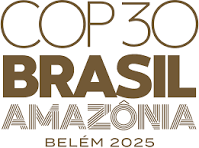Seplat Lists Openings For North Sea Expertise Across Nigerian Offshore Blocks
COP30: UNEP, CCAC warn current national plans would cut methane by only 8% by 2030, far below 30% pledge

The world is projected to fall significantly short of its methane reduction commitment under the Global Methane Pledge, with current national plans capable of delivering only an 8 percent reduction by 2030 compared to 2020 levels, far below the 30 percent target endorsed by 159 countries and the European Union, according to the first Global Methane Status Report launched during COP30 in Belém, Brazil.

Produced by the United Nations Environment Programme (UNEP) and the Climate and Clean Air Coalition (CCAC), the assessment provides the most comprehensive overview yet of progress under the pledge, warning that global action remains insufficient even as methane emissions continue to rise.
The report highlights that while projections for 2030 have improved since 2021 due largely to stricter waste regulations in Europe and North America and slower natural gas market growth between 2020 and 2024, emissions are still not decreasing at the pace needed to keep the 1.5°C warming limit within reach.
COP30, Ministers and representatives attending the Global Methane Declaration meeting stressed that viable solutions are already available. They called for faster deployment of measures across the energy, agriculture and waste sectors, and urged governments to improve transparency in target-setting and emissions reporting.
For Nigeria, Africa’s biggest oil producer and a signatory to the Global Methane Pledge, the findings could accelerate calls for stronger regulations on gas flaring, pipeline leak detection and livestock emissions, particularly as the country positions itself as a key gas supplier under its Decade of Gas strategy.
COP30, Nigeria reflects two significant realities: first, as one of Africa’s largest oil and gas producers and among the top flaring countries, it holds an outsized role in methane reduction strategies; second, the country is positioning itself to benefit from emerging finance and technology for monitoring, reducing, and capturing methane across energy and agricultural systems.
Reducing methane leakage across Nigeria’s gas infrastructure could also support foreign exchange earnings and help stabilise power generation.
Director of Programs for the COP30 Presidency, Alice Amorim, emphasised that addressing methane emissions is one of the fastest and most effective actions to be taken to contain global warming.
She added that reducing methane now acts as a true climate emergency brake, capable of helping correct the course and keep the 1.5°C goal alive.
She added: “Treating methane as a priority is not only an environmental choice but a strategic decision for competitiveness, public health, and social responsibility.”
The report finds that more than 80 per cent of the methane reduction potential by 2030 can be achieved at low cost, using existing tools such as leak detection and repair, closure of abandoned oil and gas wells, improved rice cultivation water management, and organic waste separation. The energy sector represents 72 per cent of this potential, followed by waste 18 per cent and agriculture 10 per cent.

Beyond climate benefits, the report estimates that implementing currently available mitigation measures could prevent over 180,000 premature deaths and avoid 19 million tonnes of annual agricultural losses, a critical factor for developing and food-insecure regions.
In the fossil fuel sector, the document states that the entire mitigation potential could be achieved at a cost equivalent to just two per cent of the sector’s global income in 2023, a finding expected to intensify scrutiny of major oil and gas producers and investors.
The report shows that 72 percent of total methane reduction potential lies within G20+ economies, where emissions could fall by 36 per cent if governments and industry implement mitigation measures across agriculture, waste and fossil fuels.
Executive Director of UNEP, Inger Andersen, reiterated that cutting methane remains one of the fastest ways to slow the climate crisis, protect human health and reduce agricultural losses.
The report concludes that decisions taken in the next five years will determine whether the world can capitalise on the opportunity to secure cleaner air, stronger economies and a safer climate for future generations.






